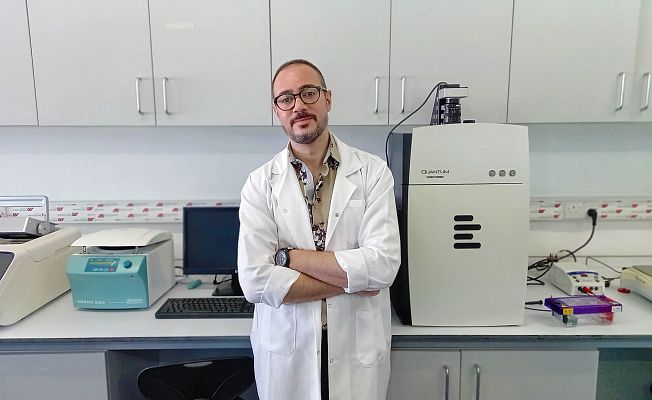Girne American University (GAU) Head of Medical Biochemistry Department Assoc. Dr. Kerem Teralı said that high-intensity sweeteners may not be as innocent as they seem.
Assoc. Dr. Kerem Teralı made a statement regarding the consumption of sugar and the use of sweeteners, “Sugar is already found naturally in milk or fruits and vegetables. Normally, there is no pressure or coercion to cut or reduce this sugar. On the other hand, there is a class of sugar that we call “free sugar”, which is added to foods and beverages (for example, biscuits, chocolate, fruit yoghurts, breakfast cereals, fruit juices and carbonated drinks), which is important for the protection of our health. For example, the British Government states that free sugar should not exceed 5% of the total daily calories. This means that an average adult can consume up to 30 grams of free sugar (roughly equivalent to seven sugar cubes) per day.
What are sugar alternatives?
“Today, high-intensity sweeteners are preferred to sweeten foods and beverages. High-intensity sweeteners bind to the taste buds on our tongue, signaling to our brain that what we eat or drink is sweet. These sweeteners are called “high-intensity” because they are hundreds or even thousands of times sweeter than table sugar. We can divide high-intensity sweeteners that have no nutritional value, that is, no calories, into two groups as natural and artificial. As an example of natural sweeteners approved by the US Food and Drug Administration, we can give steviosides obtained from the Stevia rebaudiana plant. Aspartame, saccharin and sucralose can be shown among clinically approved artificial sweeteners”.
Are high-intensity sweeteners safe?
“Today, high-intensity sweeteners are generally considered safe and do not increase the risk of cancer. In fact, it is believed that when taken to reduce free sugar in our diet, they have benefits such as weight loss, blood sugar control and protection of dental health. Despite all these positive features of high-intensity sweeteners, the main question for us is: Does being safe mean that they are healthy at the same time? In recent years, we have seen governments’ justifiable actions to reduce sugar consumption encourage food manufacturers to use more sweeteners (especially artificial sweeteners)”.
“In our research papers published in 2020 and 2021, we have shown that both natural and artificial sweeteners can disrupt the delicate balance of our gut microbiota at accepted daily doses. The gut microbiota is the name we give to the complex and dynamic community of microorganisms that live in our gut. These microorganisms have evolved with us over thousands of years and “The findings in the current literature indicate that changes in the composition and functional activity of our gut microbiota (dysbiosis) are associated with many inflammatory diseases and infections.”
What are your suggestions?
“If we want to have a healthy and balanced diet, we must first stay away from foods and beverages containing free sugar. We must not forget that these foods, imposed on us by the modern world technology and advertising, are responsible for the increasing incidence of obesity and diabetes in both children and adults. Our fondness for sweets is partly, if not completely, due to our eating habits. Therefore, we can start by trying to change our eating habits. In this context, it may be beneficial for us to read the product labels and to know what percentage of the calories in the foods we buy are from free sugar.”


